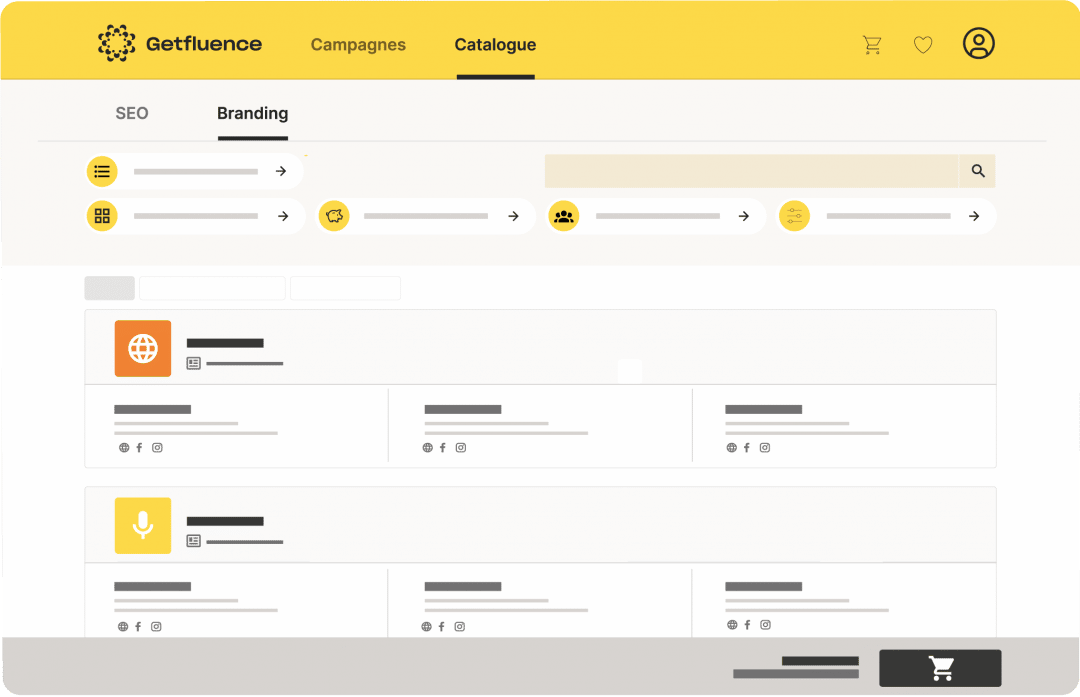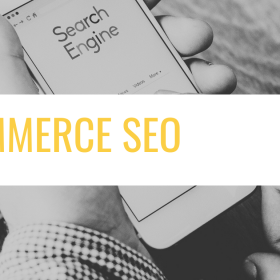The importance of measuring the return on investment of your SEO and sponsored content campaigns
Accurately measuring the ROI of SEO and sponsored content efforts is a must for any business looking to reach its marketing goals.
Indeed, without a proper way to keep track of the ROI of their strategies, SEO professionals and digital marketers may struggle in building approaches that last over time, and to adjust their efforts according to the outcomes they receive.
However, research shows that many businesses today overlook this step, as they either struggle to measure the ROI of their content, or they simply avoid this practice.
So, how can you accurately measure the ROI of your SEO and sponsored content efforts?
Let’s go over the best ways to measure the ROI of your SEO and sponsored content strategies, which metrics to use, and the benefits of always keeping an eye on such data.
Why tracking your SEO and sponsored content efforts is essential
Measuring the return on investment of your SEO and sponsored content efforts is crucial for several reasons.
Not only it helps you track the success of your campaigns, but it also enables you to make data-driven decisions that can improve your overall marketing strategy.

Here are some of the best perks of measuring the ROI of your SEO and sponsored content efforts:
- Improved decision-making
As trivial as it may seem, by measuring the ROI of your campaigns, you can understand what works and what doesn’t.
This information can then be used to optimize future campaigns and help your business make more informed decisions.
- Better allocation of resources
When you know what campaigns are generating the best results, you can allocate resources to the content that is producing the highest impact.
This can help you maximize your return on investment and improve your overall marketing performance.
- Improved customer engagement
By tracking customer engagement as a metric for your ROI, you can better understand what resonates with your target audience.
This can help you create more effective campaigns that are tailored to your audience’s interests, leading to increased engagement and higher ROI.
- Increased brand awareness
Measuring the ROI of your campaigns can help you understand what content your audience prefers, allowing you to focus on creating content that drives brand awareness and recognition.
Best practices to measure the ROI of your SEO and sponsored content efforts
There are many ways you can measure the ROI of your SEO and sponsored content efforts.
Here are some of the best practices to do it:
1. Use Google Analytics
Google Analytics is one of the best tools for measuring the ROI of your SEO and sponsored content efforts.
Whatever the question you’re trying to answer, Google Analytics will make up a powerful ally to track the ROI of your SEO and sponsored content campaigns
The platform provides a wealth of data on your website traffic, including where your traffic is coming from, what content is performing well, and how visitors are engaging with what you share.
Anyway, the best metrics to pick up on the platform largely depend on the scope of your campaign, meaning you should get clear on them beforehand.
If the primary goal of your sponsored content effort is driving more sales and getting more leads, then conversion rate is the metric you’re looking for.
This indicator tracks the percentage of visitors who achieve a desired action after arriving at your website from your sponsored content – such as filling out a form or making a purchase.
Since Google Analytics allows you to sort your data according to each of your channels, you can this information to compare the CR of each of the entry points to your website.
This will make you understand how your campaigns are performing and how to adjust your strategy accordingly, by answering questions like:
“Is the conversion rate of my sponsored content campaigns better than the CR of people coming from Google Search? What channels should I focus the most on?”
Or:
“How has my CR changed after setting up my sponsored content campaigns? Are my efforts paying off?”
Conversion rate is among the best metrics to keep an eye on the impact your sponsored content has on your sales and leads, and all the data you need to track it is stored in the “Conversions” section on Google Analytics menu.
If your efforts are instead more targeted toward SEO and driving more people to your website, then referral traffic may be a better indicator for you.
Referral traffic tracks the number of visitors coming to your website from your sponsored content and can be found in the “Acquisition” section of Google Analytics, under “All Traffic” and “Referrals”.
You can use such information by comparing it to the overall traffic of your website, thus seeing how much your sponsored content efforts are contributing to your total website traffic.
Whatever the question you’re trying to answer, Google Analytics will make up a powerful ally to track the ROI of your SEO and sponsored content campaigns, so we suggest you don’t miss out on it for your marketing strategy.
2. Use Hubspot (or similar tools)
Hubspot is another powerful tool you can use to measure the ROI of your SEO and sponsored content campaigns.
This all-in-one marketing and sales platform can be helpful because of all the robust analytics it offers, as well as its plenty of reporting capabilities.
Unlike Google Analytics – which is a web-specialized analytics tool – Hubspot offers you more insight into the whole journey of your customers.
This will allow you to have different metrics to use to keep track of the ROI of your SEO and sponsored content efforts, and to zoom out on your campaigns if needed.
Finally, Hubspot provides a complete view of your sales pipeline, including the number of leads, opportunities, and closed deals.
This helps you see the progression of leads through your pipeline starting from your sponsored content and identify any bottlenecks that may be hindering your ability to close more deals.
A starter plan version of Hubspot is available for free, and it offers relevant features to keep an eye on your sponsored content and SEO efforts.
3. Keep in touch with your partner publishers
Staying in touch with your partner publishers is a crucial aspect of tracking the ROI of your SEO and sponsored content efforts
Staying in touch with your partner publishers is another strategy that can help you track the ROI of your SEO and sponsored content campaigns.
Luckily enough, there are many ways you can do it.
First, you can ask your partner publishers for data regarding the performance of your sponsored content on their site.
This information can be helpful to determine the impact of your sponsored content on specific metrics such as website traffic, engagement, lead generation, and conversions.
Additionally, it can also be used to identify areas for improvement in your sponsored content strategy.
The second way you can stay in touch with your partners is by collaborating on regular check-ins and data analysis sessions.
This will help you assess the performance of your sponsored content over time and make adjustments to your strategy based on the insights you gain.
Finally, it is essential you establish a clear and effective communication channel with your partners, to ensure you receive all the relevant data in a timely manner.
You can achieve this through regular email check-ins, monthly meetings, or recurrent data analysis sessions.
Staying in touch with your partner publishers is a crucial aspect of tracking the ROI of your SEO and sponsored content efforts, which will provide you with a complete picture of the performance of your campaigns.
Boost your SEO and sponsored content campaigns by always keeping an eye on your data
If you’re planning to launch your SEO or sponsored content campaigns without any tool to accurately measure your efforts, you’re facing a remarkably high risk.
It doesn’t matter how confident you feel about the outcomes – without a way to accurately track your data, you won’t know how to scale your campaigns, or even worse, you won’t know what you’re doing wrong.
The consequences of this may be catastrophically harmful to your business – from a loss of both time and financial resources, to irreversible damage to your overall marketing strategy.
These premises make it crucial for any business to set up a way to track their SEO and sponsored content campaigns upfront, to limit as much as possible the risk of failure.
Luckily, Getfluence exactly does that.

Getfluence is a global marketplace for sponsored content that allows you to cooperate with over 10.000+ premium publishers around the world, all while keeping an eye on your most important data and metrics.
With Getfluence, you can publish your content on publishers selected by SEO-trusted KPIs, so that you can ensure you only pick the highest-quality premium media for your sponsored content.
You can sort publishers according to metrics like unique visitors, domain authority, citation flow, and trust flow.
If you’re instead aiming to set a conversions-based campaign, Getfluence will help you gather all the data you need about your sponsored content directly from your publishers.
If you’re looking to get the most out of your SEO and sponsored content campaigns in a concrete and measurable way, then Getfluence is the choice you need.
Build solid SEO and sponsored content campaigns with Getfluence now.
Most asked questions about tracking the ROI of SEO and sponsored content efforts
How do I track my ROI for SEO?
There are many ways you can track the ROI of your SEO efforts. The best way to do it is to accurately pick KPIs that are relevant to your business goals, such as organic traffic, rankings in the SERPs, conversion rates, and revenue, to see how they change.
How do you calculate ROI on content?
The way you calculate ROI on your sponsored content highly depends on the scope of your campaigns.
If you’re looking to increase your brand awareness, then metrics like unique visitors may be a good fit, while conversion rate is the best option for you if you’re aiming for conversions.
What are the 3 SEO KPIs you should be tracking?
Some of the best KPIs you should track to ensure your SEO efforts are impacting your business as planned are conversion rate, organic traffic, and click-through rate.
However, you should keep in mind that the KPIs you pick shall always be relevant to your unique business and marketing goals.





